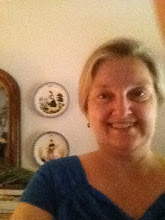
We decided to go to Dublin.
Every time we have thought about taking a "big" trip we tarry around the idea of Dublin or Ireland. The romance of it is almost irresistible. The contrast of the sheep-dotted fields of green grass and the low stone walls so close to the ocean and its pitiless wind just rings in the mind like the minor chord in a song that pulls at your heart strings. And we've long loved Irish music.
Our friends Bill and Dodie came from Cambridge, (Mass). They stayed in Oxford for a few days visiting with us out in "the country" and making forays into Oxford on a regular basis. Once "the boys" got Dublin in their sites, Bill and Craig were lured by the Chester Beatty Library (the home of the some of oldest known fragments of the gospels), the Book of Kells, and the promise of some awesome Pints in some awesome Pubs in the city where, if popular legend is to be believed, God invented Pints and Pubs.
That and the 29 pound sail/rail deal. For 29 pounds you could take the train to Holyhead and catch the ferry from Holyhead to Dublin. It sounded so easy.
For the return trip, the taxi driver we called for 6:45 AM came as requested. We told him the tale of our many connections on our way back to the ferry. He said, "Why din't ya jest fly? I flew to Manch'ster far 29 Euros the weekend." Granted we saw wonderful countryside, a part we would never have seen had we not gone by land. The train followed the north shore of Wales where we watched the shore turn from stone to sand, saw the sheep grazing in salt meadows, their lambs at their sides. We had a 3 hour ferry crossing over some cold, grey and wind whipped ocean that made me wonder at the courage of sailors. But I was thinking on the way back to the ferry dock that once was maybe enough.
I decided it was all worth it though because of the "Session." We went to dinner at a Pub called the "Brazen Head" on the South side of the Liffey River that flows through the heart of Dublin. Reputed to be its oldest pub, it was a few blocks from the apartment we had rented with our friends. We walked along sidewalks and over a bridge, the river on one shoulder and the city traffic on the other. We spotted the place and ducked in the doorway to find a pub with a bar, 6 or 8 small dark tables surrounded by low stools and red upholstered benches along the walls. We ordered our meals and a round of pints, glad to be warm, out of the wind, and together. Our plates arrived, their fashionably over sized diameter making it impossible to get four of them on our table without offsetting their centers just a bit.
Just as we were finishing our meal, I saw 2 fellows make their way to the corner table next to ours holding instrument cases and some electrical equipment that looked like small amps and a table microphone. I said to my friends, "This is a very good sign." What followed was the addition of 4 or 5 more musicians, their friends and their equipment who widened the circle to include the corner of our table. The tuning proceeded without too much fuss and when the first note sounded, the pub, already an intimate space, became a gathering of people focused on their muse. After the first bar, the fiddle player set the pace with his heel on the ancient wooden floor. The vibration was catching as it traveled up my leg. I was not alone, as it could be felt by everyone in the room, who, along with the other musicians became part of the music.
Good music doesn't just have a rhythm, it floats you along on a tide of sound over which you have no control. The spoon and the Bodrhan players shape their songs from skin and muscle. The skill and wisdom of the storyteller come from the singer and the song. The humor and heart of all the musicians is evident on their faces and in their music. The volume never oppressive, the music is just loud enough to command attention. When you listen, you can hear the wisdom or longing or the expectation of suffering of a people still here in the midst of life, seeing no contradiction in this. Together, these players, the spoon player, the guitar, mandolin and button box players, the Bodrhan player, the singer and the penny whistle player bore us along with their strength, the work of their hands, their voices and their hearts. Afterward we were not the same as we had been before.

No comments:
Post a Comment